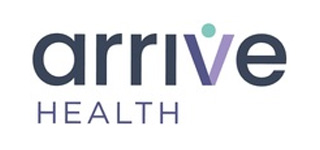When TytoCare entered telehealth over a decade ago, the technology was “nice to have,” according to Stephanie Schmidt, area vice president for provider solutions at the digital health company.
“It went from something that was a nice to have, to something that was absolutely ‘need to have’ during the pandemic, and now I think we’re hitting our balance,” Schmidt told Fierce Healthcare.
As the pandemic wanes, digital health companies are partnering with health systems to integrate virtual care into their practices. Partnerships like those between TytoCare and Overlake Medical Center or Michigan State University Healthcare and RecoveryOne are crafting a long-term future for hybrid care.
“Our priority for our patients is to provide the best possible personalized treatment, while simultaneously working to raise the bar on quality and access to care,” Overlake Clinics Chief Physician Executive Kelan Koenig, M.D., said in a press release.
Hybrid primary care designed to avoid “point solution fatigue”
TytoCare has scored a wide range of high-profile partnerships in the past including Henry Ford Health and Kaiser Permanente, although the collaboration with Overlake Medical Center marks its first in the Pacific Northwest. When the digital health platform meets with a health system to design a hybrid model, Schmidt says there are a few things to keep in mind.
TytoCare starts with the three core business metrics a provider is hoping to improve. Next step is identifying the right patient population. While Overlake has not specified which patient populations will benefit from the early stages of the tech rollout, the company did share that TytoCare stood out for its unique solution.
While the last three years saw a slew of new telehealth platforms enter the market, TytoCare offers a solution that could be seen as more complex. Instead of having patients use the devices already in their homes, the tech is deployed via TytoCare’s Home Smart Clinic.
The company’s exam kit is a small device with add-ons such as the stethoscope adapter and the otoscope adapter for checking the ear canal. The FDA-cleared remote physical examination kit connects providers to patients by sharing health metrics regarding the heart, skin, ears, throat, abdomen and lungs and measures heart rate and body temperature from home.
“We bring traditional primary care visits that someone would come into the office for into the home,” Schmidt said. “We’re working with partners to increase provider engagement in virtual care by mirroring clinic-quality care virtually.”
In one case study with a payer partner seeking to minimize unnecessary ED visits, the health plan increased ED diversion by 40.5%. A third of virtual visits that ended in diagnosis and ED diversion were upper respiratory and viral infections, nearly 20% were ear infections, 8% were lower respiratory infections and 7% were skin disorders.
Overlake will be introducing TytoCare’s Home Smart Clinic into its Concierge Care medical service by rolling out hundreds of devices. Patients will also receive a pulse oximeter, a blood pressure cuff and a weight scale.
“So what that allows for is really a broad range of diagnostic tests for concierge care patients at the Overlake facility,” Schmidt said. “Within a lot of health systems, there’s sort of an ecosystem of multiple products that exist. We offer multiple services that wrap around the device so that it’s no longer just a device that’s sitting on your shelf.”
As health systems shape their hybrid care strategies, executives are interested in an all-encompassing solution that avoids what TytoCare calls “point-solution fatigue,” Schmidt said. The company also partners with electronic medical records software provider Epic to fully integrate remote insights into providers’ workflow.
TytoCare claims to have 59% more accurate diagnosis codes than traditional audio-visual telehealth with 98% of visits not requiring an in-person follow-up. Providers are also integrated into Tyto Engagement Labs, a suite of user engagement services to increase utilization and retention.
Expanding access hybrid musculoskeletal care in Michigan
In a recently announced collaboration, RecoveryOne’s virtual platform for musculoskeletal conditions will soon be integrated into MSU Healthcare’s network.
RecoveryOne claims it is currently the industry’s only full-body virtual physical therapy and MSK solution.
MSU Health Care is the fully integrated academic health center of Michigan State University, representing more than 600 faculty and affiliate providers.
When asked why Michigan, Mark Luck Olson, RecoveryOne CEO, noted that the health system has the “prescient foresight” to see an opportunity and the future of hybrid care. Also, Michigan is a mix of urban, rural and sizable secondary market areas, he added.
Patients will be triaged to either the in-person clinic or virtual therapy. “For some patients, we’re aiming to consolidate both into one treatment plan,” said Roger Jansen, MSU Health Care’s chief innovation officer, in a press release. “With RecoveryOne’s help, we are meeting our patients where they are, extending our reach to serve more patients with our current workforce all which increases our value to the community.”
When the Centers for Medicare & Medicaid Services (CMS) enabled reimbursement for remote MSK therapeutic services such as monitoring patient adherence and response to therapy, the duo saw the chance to improve care, specifically for those over the age of 65. Three quarters of the age group experience MSK conditions.



